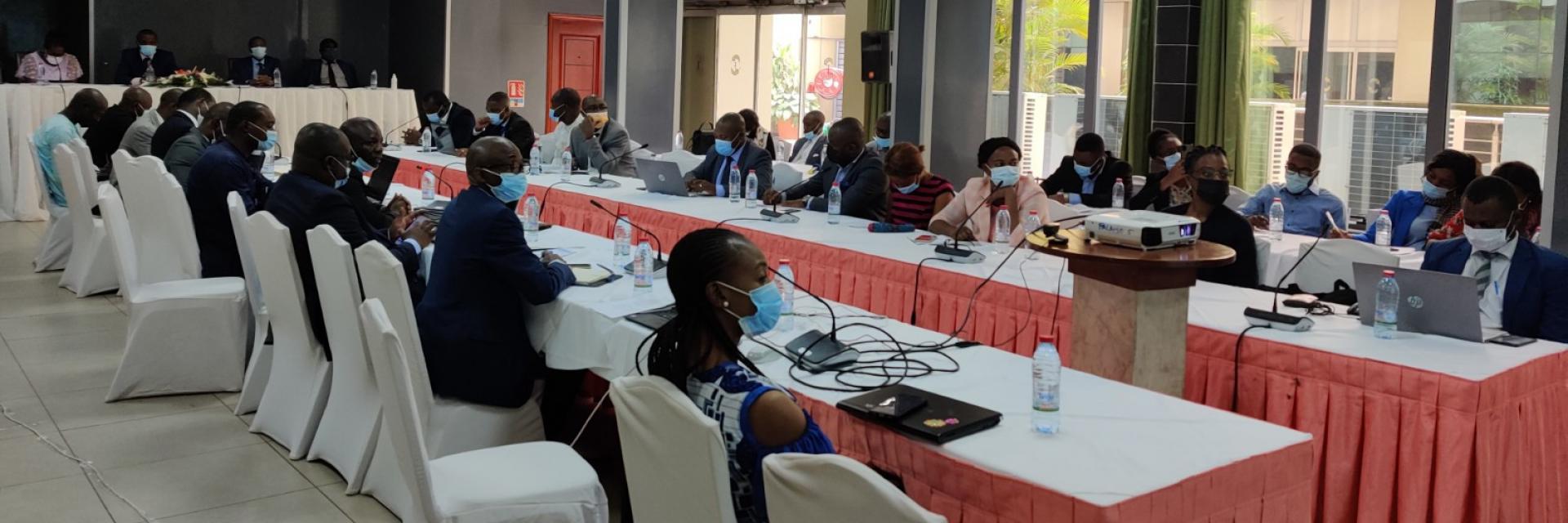Addis Ababa, 3 December 2021 – Yaoundé is putting in place a new economic and financial resilience plan, with the support of the United Nations Economic Commission for Africa (ECA), to recover from the impact of the COVID-19 pandemic and strengthen its resilience against future crises.
The plan was unveiled at a multi-stakeholder workshop in Yaoundé on 30 November, where city officials joined delegates from UN agencies, businesses, academia and civil society to review its strategic priorities and policy proposals.
Developed after wide-ranging multi-sectoral consultations, including with authorities in Yaoundé, and an in-depth diagnostics study, the plan is part of a wider UN project which seeks to strengthen the capacity of local governments in 16 global cities on building urban economic resilience in the wake of the COVID-19 pandemic.
Drivers of economic vulnerabilities
According to the study, the economy of Yaoundé, similar to that of cities around the world, was severely affected by the pandemic, with its low economic diversity and high informality making the local business environment more susceptible to disruption.
Recognizing the vulnerabilities, the study recommended that improving access to affordable finance through mobile banking and technology, especially for small businesses, should be a key priority for Yaoundé. It further called for a push to expand road networks, build open spaces, and create walking and cycling lanes for improving the city’s quality of life and infrastructure system.
The study emphasized that implementing specific measures to support the informal sector, slum dwellers, women and other vulnerable groups is critical to Yaoundé’s economic recovery from the ongoing crisis and transition towards a shockproof economy.
‘Unparalleled opportunity’
In her statement, Ms. Edlam Yemeru, Director a.i. for ECA’s Gender, Poverty and Social Policy Division, said: “African cities have faced many challenges in responding to the pandemic, especially in economic and financial aspects. The COVID-19 risk factors are acute in African cities in part due to the largely unplanned and poorly managed urban development, resulting in widespread informal settlements, and severe infrastructure and service deficits.”
However, she added, cities offer us an unparalleled opportunity at this moment in time to spearhead efforts towards a new social contract to tackle poverty, overcome development gaps, accelerate the COVID-19 recovery and build economic resilience in Africa.
Ms. Yemeru continued: “We hope this plan will offer a comprehensive framework over which local policymakers will have commitment and ownership to steer Yaoundé on track towards a resilient and sustainable city, which creates equal opportunities for all its residents and holds a robust ability to absorb future disruptions.”
Speaking at the workshop, Mr. Mvogo Mboa Simon, First Deputy Mayor of the City of Yaoundé, expressed his appreciation for Yaoundé being selected as one of the 16 pilot cities from around the world participating in the UN’s project on Building Urban Economic Resilience during and after COVID-19.
He said the support comes at a time when the city most needed it to deal with the adverse effects of the COVID-19 pandemic. Mr. Simon described his city’s engagement as a valuable opportunity for capacity building and experience sharing with peers in Africa and around the world.
Interventions from the workshop will strengthen the plan’s five thematic areas of resilience – labor market conditions, financial system, economic governance arraignments, business environment, and infrastructure and connectivity – which will ultimately feed into Yaoundé’s Urban Master Plan.
Issued by:
Communications Section
Economic Commission for Africa
PO Box 3001
Addis Ababa
Ethiopia
Tel: +251 11 551 5826
E-mail: eca-info@un.org

